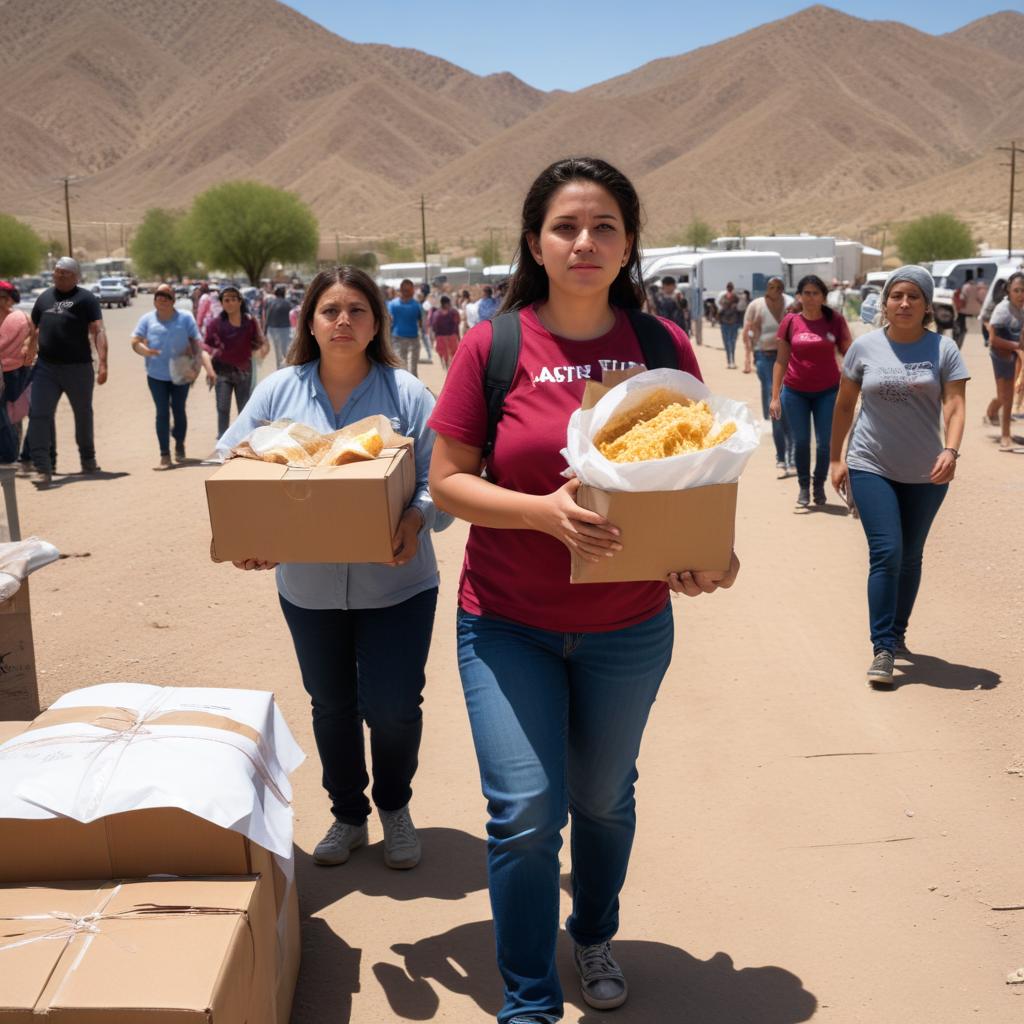Across the US-Mexico border, Catholic and interfaith groups have formed an 'underground railroad' of support, providing food, shelter, legal aid, and spiritual comfort to immigrants terrified by federal crackdowns. Despite risks and official condemnation, these organizations, backed by leaders like Pope Leo XIV, actively defy harsh immigration policies, upholding humanitarian principles and church teachings.
Catholic and interfaith groups across the US-Mexico border and beyond are actively creating an 'underground railroad' of aid and advocacy for immigrants facing federal crackdowns. In places like Coachella, California, parishioners deliver food to fearful families, while in Nogales, Mexico, the Kino Border Initiative provides meals and services to deported individuals. In El Paso, Texas, interfaith groups pray for immigrant families and monitor court hearings, witnessing the high rate of denials and immediate detentions. This widespread movement is rooted in Catholic social teaching, which the Rev. Raymond Riding explains is 'on the side of the immigrant.' Pope Leo XIV has strongly condemned the 'inhuman' treatment of immigrants and mass deportations, urging US bishops to be 'stronger in their voice.' Bishops like Mark Seitz of El Paso, Alberto Rojas of San Bernardino, and Michael M Pham of San Diego have been outspoken critics, offering support to their communities, even allowing parishioners to skip mass due to fear of leaving home. The 'underground railroad' involves rapid response teams, some public, others covert due to risks. Services range from delivering groceries and celebrating online mass for fearful parishioners to providing legal aid, shelter, and suicide prevention for those facing deportation. The article highlights traumatic incidents, such as a Presbyterian pastor being hit by a pepper ball during a protest, and US Representative Jim Jordan defending ICE agents' actions. Despite some Catholic support for enforcement, the church hierarchy, including Pope Leo XIV, remains firm in its stance. The El Paso delegation, after meeting with the Pope, shared videos and testimonies that moved the pontiff, who stressed the church's duty to offer hope and not remain silent. The crisis has deeply traumatized Latino communities, the largest minority group targeted, with Archbishop Gustavo García-Siller describing the fear as 'terror.' Since the current administration took office, approximately 1.4 million immigrants have left the US. From providing constitutional rights cards to offering spiritual guidance and practical help for families preparing for potential detention, these faith-based groups are on the frontlines. Even in the face of despair, like a man contemplating suicide in court, volunteers and nuns provide crucial support. The movement is framed not as political, but as a matter of 'justice,' embodying the message of welcoming the stranger and standing against policies perceived as a 'war against the poor and the refugees.'



